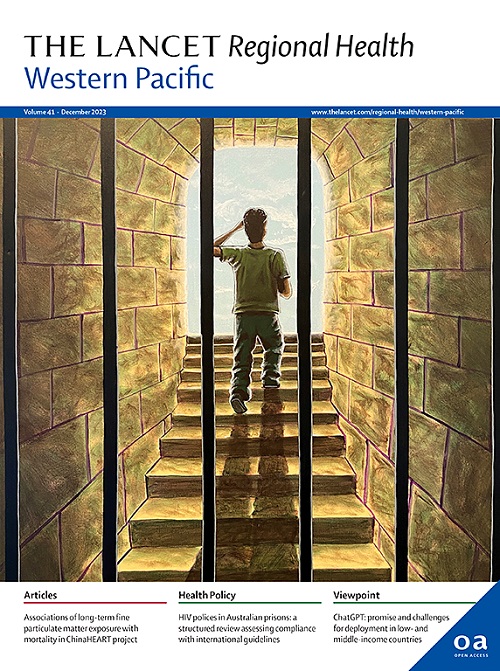Gaawaadhi Gadudha: exploring how cultural camps support health and wellbeing among Aboriginal adults in New South Wales Australia, a qualitative study
IF 7.6
1区 医学
Q1 HEALTH CARE SCIENCES & SERVICES
引用次数: 0
Abstract
Background
Culture and its practice is a recognised, but not well understood factor, in Aboriginal health and wellbeing. Our study aimed to explore how health and wellbeing are phenomenologically connected to cultural practices, foods, medicines, languages, and Country, through the platform of ‘on-Country’ camps facilitated by Aboriginal cultural knowledge holders in NSW, Australia.
Methods
Our study is based on a collaboration between knowledge holders from freshwater and saltwater cultures, and Aboriginal and non-Aboriginal researchers. Three existing cultural camps on Yuwaalaraay, Gamilaraay, and Yuin-Djirringanj Country were observed as part of the study. Within the camps, eight yarning circles were conducted with 76 participants. Data were analysed inductively using literal code descriptors which were cross tabulated to identify emergent patterns relevant to the study aims.
Findings
Three key areas emerged from our analysis: 1) what constitutes cultural health; 2) the way in which cultural camps provide a mechanism for improved cultural health and; 3) the key elements needed to deliver a cultural camp that provides therapeutic benefits. Camps had a positive effect on participants’ social, emotional, and spiritual health and wellbeing, often described through experiences of healing or stress relief, connection with Country and each other, and engaging in cultural practices.
Interpretation
‘On-Country’ camps that are facilitated by place-based knowledge holders, provide a unique and promising platform that supports Aboriginal health and wellbeing through therapeutic, sensory experiences that strengthen cultural health; including cultural identity, knowledge gain and sharing, connection to Country, mob, and ancestors, and engagement in cultural practices. Access to Country and land to conduct camps remains a barrier to their delivery.
Funding
This study was funded by the Australian Government’s Medical Research Future Fund (MRF2009522).
Gaawaadhi Gadudha:探索文化营地如何支持澳大利亚新南威尔士州土著成年人的健康和福祉,一项定性研究
文化及其实践在土著居民的健康和福祉中是一个公认的因素,但尚未得到很好的理解。我们的研究旨在通过澳大利亚新南威尔士州土著文化知识持有者提供的“乡村”营地平台,探索健康和福祉如何在现象上与文化习俗、食物、药物、语言和国家联系起来。方法我们的研究是基于淡水和咸水文化知识持有者以及土著和非土著研究人员之间的合作。作为研究的一部分,研究人员观察了位于Yuwaalaraay、Gamilaraay和Yuin-Djirringanj国家的三个现有文化营地。在营地内,76名参与者进行了8个纺纱圈。使用交叉表的文字代码描述符对数据进行归纳分析,以确定与研究目标相关的紧急模式。从我们的分析中得出了三个关键领域:1)什么构成了文化健康;2)文化营提供改善文化健康机制的方式;3)提供治疗效益的文化营所需的关键要素。营地对参与者的社会、情感和精神健康和福祉有积极影响,通常通过治疗或缓解压力、与国家和彼此的联系以及参与文化实践的经历来描述。由地方知识持有者推动的“乡村”解释营提供了一个独特而有前途的平台,通过加强文化健康的治疗性感官体验来支持土著居民的健康和福祉;包括文化认同、知识获取和分享、与国家、暴徒和祖先的联系,以及参与文化实践。进入国家和土地开展营地仍然是运送这些物资的障碍。本研究由澳大利亚政府的医学研究未来基金(MRF2009522)资助。
本文章由计算机程序翻译,如有差异,请以英文原文为准。
求助全文
约1分钟内获得全文
求助全文
来源期刊

The Lancet Regional Health: Western Pacific
Medicine-Pediatrics, Perinatology and Child Health
CiteScore
8.80
自引率
2.80%
发文量
305
审稿时长
11 weeks
期刊介绍:
The Lancet Regional Health – Western Pacific, a gold open access journal, is an integral part of The Lancet's global initiative advocating for healthcare quality and access worldwide. It aims to advance clinical practice and health policy in the Western Pacific region, contributing to enhanced health outcomes. The journal publishes high-quality original research shedding light on clinical practice and health policy in the region. It also includes reviews, commentaries, and opinion pieces covering diverse regional health topics, such as infectious diseases, non-communicable diseases, child and adolescent health, maternal and reproductive health, aging health, mental health, the health workforce and systems, and health policy.
 求助内容:
求助内容: 应助结果提醒方式:
应助结果提醒方式:


